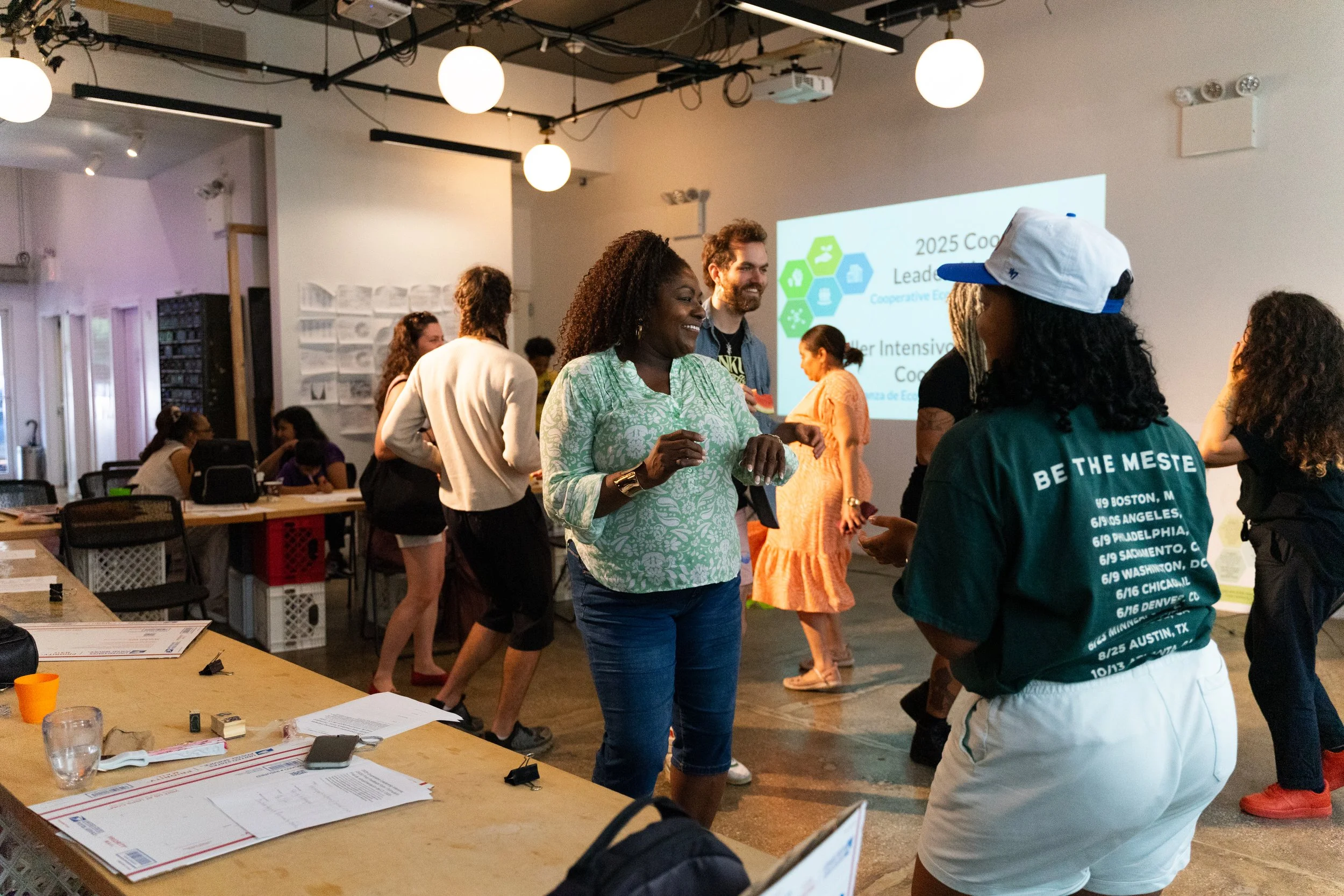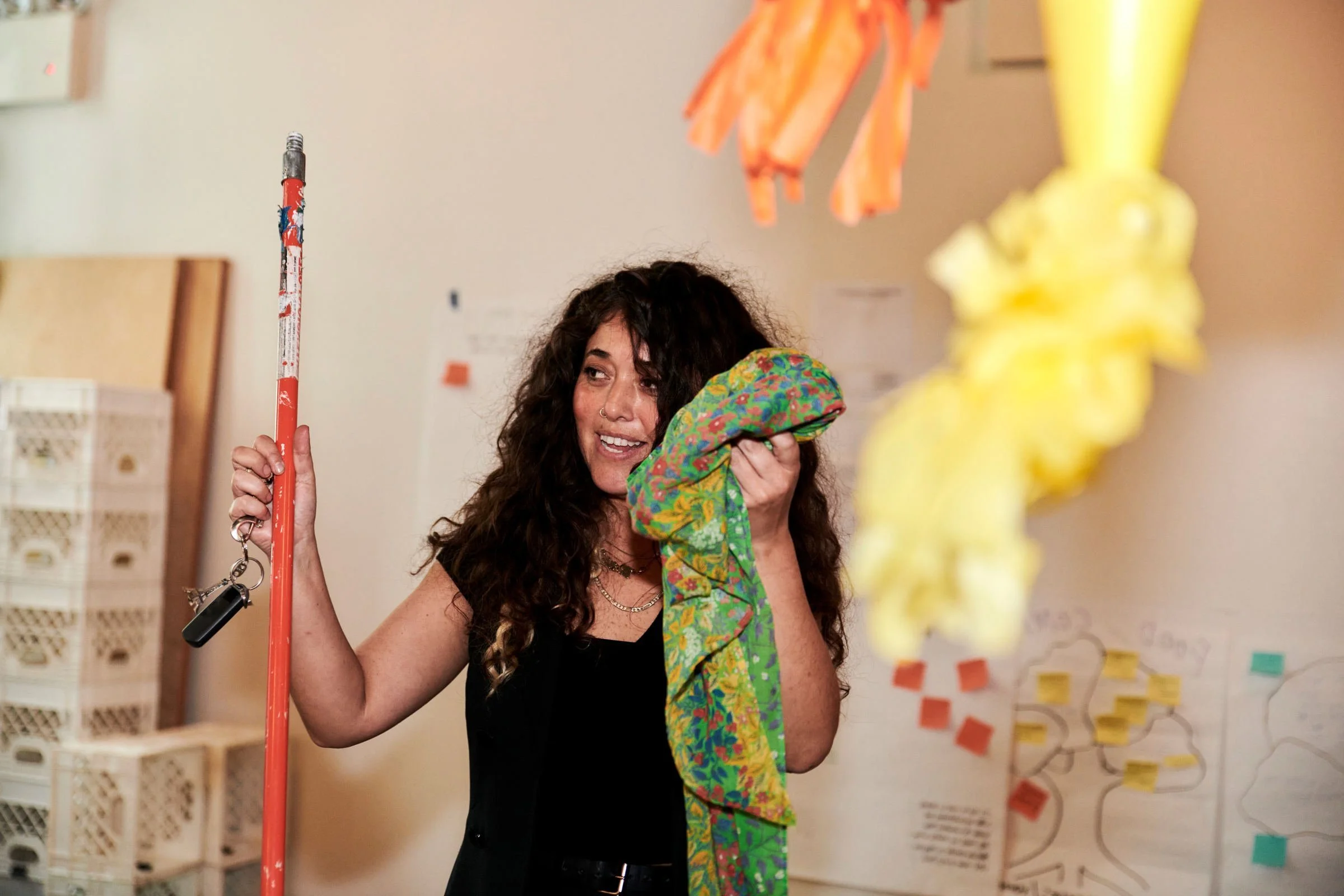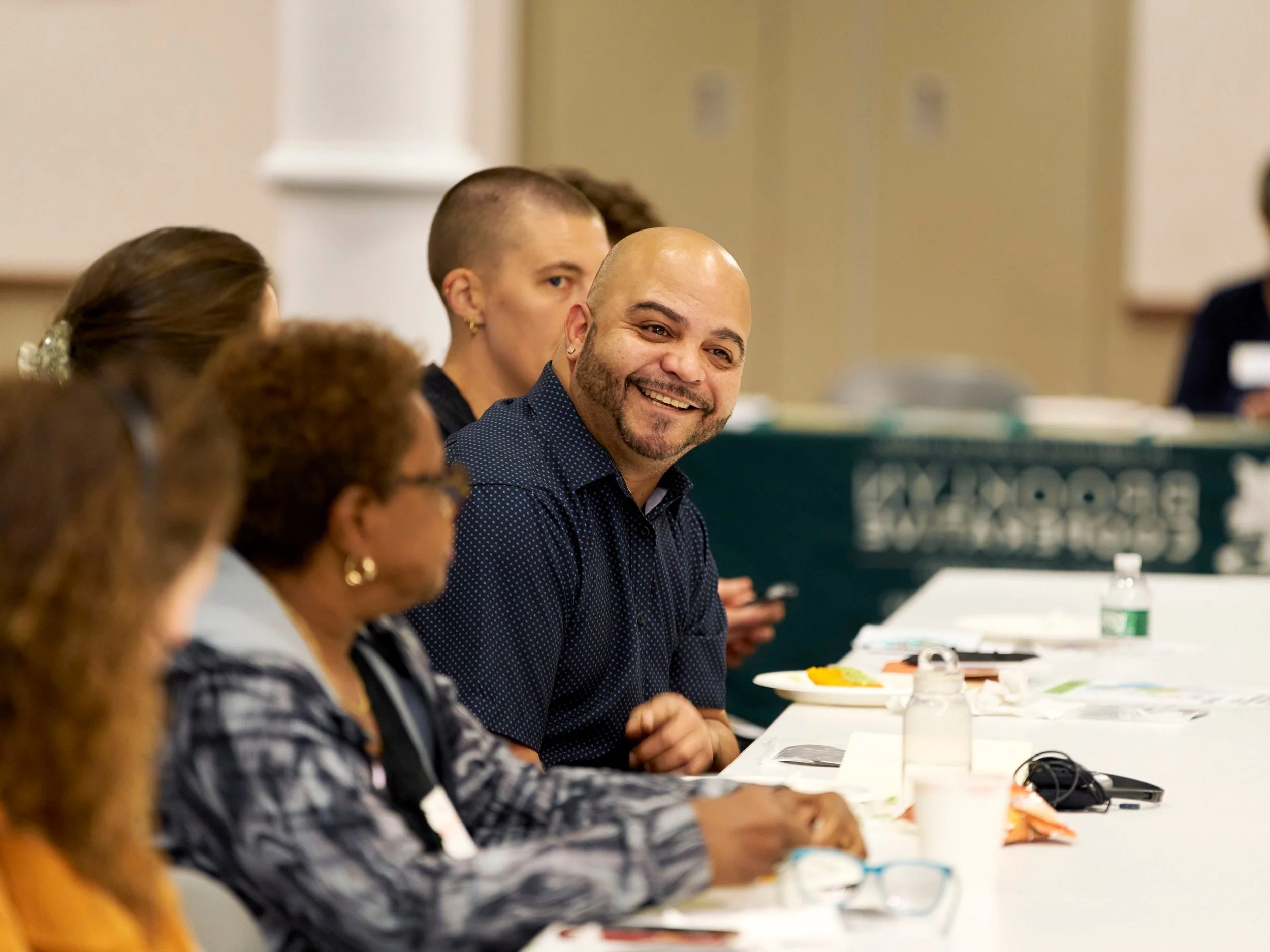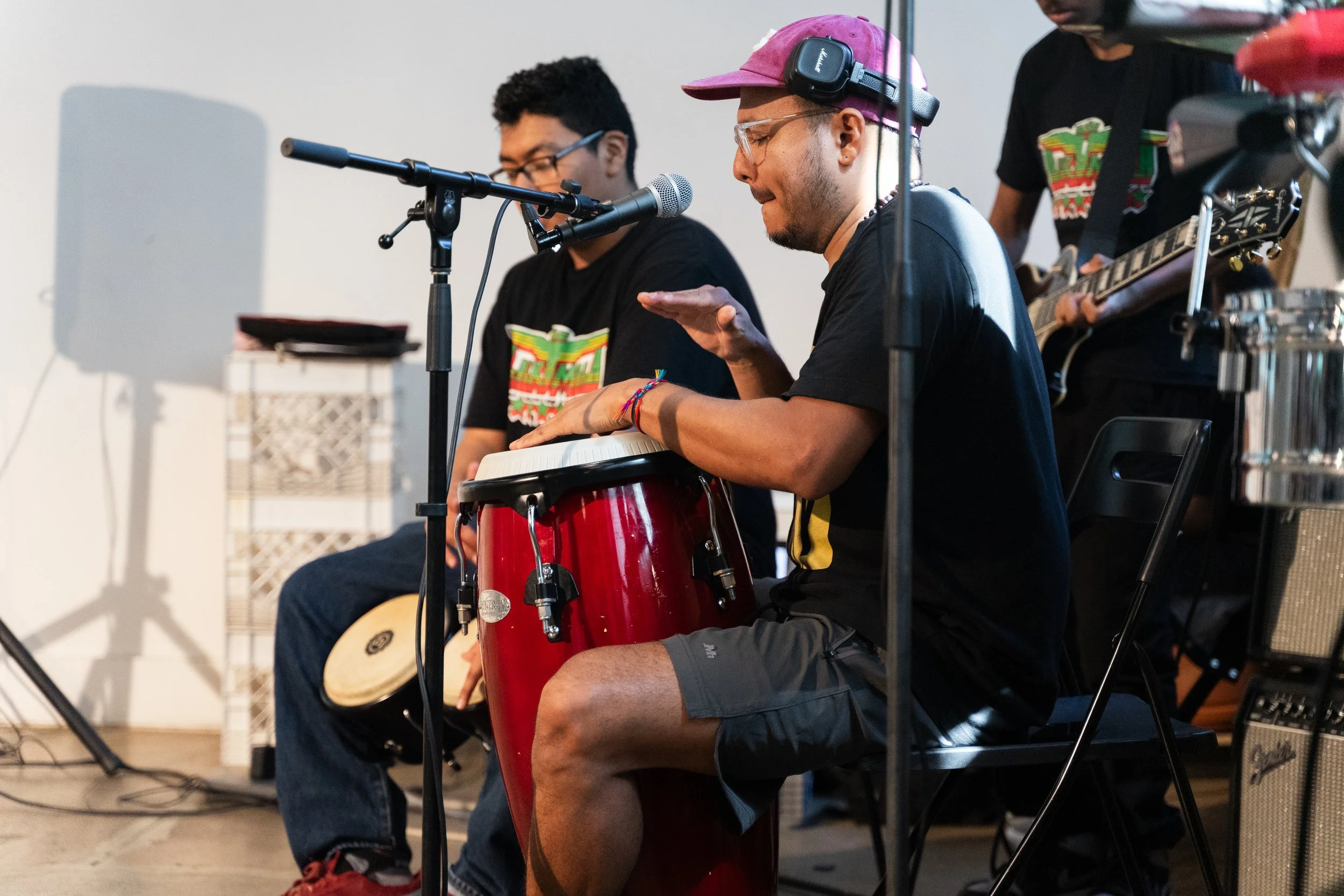
programs
To build New York City’s 🗽
solidarity economy ❤️🔥
CEANYC works in four areas:
grounded assessments
Talking with CEANYC members week in and week out, we ground ourselves in the economic and social conditions our members face and strategize with them to build power. We regularly check in about our members’ reach: what size they are, how many of them there are, what obstacles they face, and what resources they need to grow.
We use this data to map and document the unique richness and density of NYC’s cooperative and community-controlled economy. Our up-to-date assessments undergird our program strategy and allow us to sharpen our work to build an alternative to the economic systems that dominate our lives.
-
Our “Seeding Solidarity” map builds on the history of local struggles, clarifies where our members are, and helps us imagine the way to build a new world by strengthening and connecting local projects to each other.
-
We engage with members and work closely with sectoral hubs, which affirm and clarify solidarity economy values and assist, organize and advocate for the needs of their member groups.
These sectoral hubs work in the areas of housing, gardens, agricultural distribution, worker cooperatives, community development credit unions, land trusts, energy and internet.
Education and Training
Political education is at the heart of CEANYC’s work to support the growth of a solidarity economy in NYC. We offer a range of educational programming, from customized individual workshops to annual month-long programs to support leadership development within our member groups.
Our flagship program, the Cooperative Leadership Institute (CLI) offers political education, skill-building, organizational development support, and relationship-building, to a cohort of ~20 member-leaders every year. Learn more about our educational offerings below.
Workshops
-
We offer a 2-hour overview of solidarity and cooperative enterprise principles and values, the landscape of such enterprise in NYC’s neighborhoods, and networking with active groups. This workshop can be tailored for groups interested in learning more about the field who may not yet be participating, or to support those already in the field to learn more about the work of others.
-
A new offering based on member requests, our 3-hour introductory workshop on Conflict Resilience supports member groups to prepare for and navigate conflict within cooperative, democratically-run projects.
The workshop introduces tools, frameworks, self-assessments, and an opportunity to practice skills to shift groups from having destructive conflict to engaging in conflict that is generative.
Coming Soon
Series and Programs
-
Cooperative Leadership Intensive is a participatory workshop series for leaders of member groups. It offers a deep dive into how cooperatives and solidarity economy groups work -- individually, collectively, and in the many communities we are part of.
The 6-month training series is designed to build the skills and analysis needed for functional cooperative work, leading values-aligned decision-making, and addressing oppression and power in an organization, all while building a network of peers to support ongoing economic and political transformation. We offer the CLI once a year—applications open in November, and the program begins in January.
-
A training for leaders of community gardens, GreenThumb is a collaboration between CEANYC and the City Parks Department.
The 4-month program supports community garden leaders to build healthy, durable gardens, through political education, and skill-building, including developing succession plans and deepening ties with their neighborhoods and other community-controlled groups.
This program runs annually from January to April. We will be running our 5th iteration in 2026.
-
Our Peer Educator program invites solidarity economy practitioners across New York City to support CEANYC programs, speak on panels, and facilitate workshops, with stipend support. To join the Peer Educator program, you must have education as a facilitator and/or educator, be a CEANYC member, and participate in our Peer Educator training.
Hit up organize@gocoopnyc.org if you want to be a Peer Educator.
Strengthen Connections
We bring member groups together to deepen relationships, root their work in solidarity economy principles, and coordinate economic activity across sectors.
-
We gather our member groups at member meetings, share board election results, review our past year while refining our strategy for the year ahead, & of course build connections and mutual knowledge.
-
We bring CEANYC members from across economic sectors to visit one of the over 700 community gardens in the city, meet new friends and comrades, learn about each others’ work, enjoy these unique and precious green spaces and deepen our connection to different neighborhoods across the city.
-
Many NYC neighborhoods have a rich landscape of co-ops, credit unions, community gardens, community-supported agriculture (CSA), and more. Our neighborhood-based solidarity economy tours highlight the history of local struggles for justice, encourage place-based networking, introduce our member groups to potential collaborators, and offer a tangible experience of the unique density of values-aligned projects in many of NYC’s neighborhoods.
These connections also provide a foundation for envisioning possibilities for the growth of the solidarity economy. Past neighborhood tours have included Harlem, lower East Side and North Brooklyn.
economic match-making
We invite our member groups to prioritize working and doing business with one another, and we bridge sectors and facilitate connections to close the deal.
We can rely less and less on the status quo economy by building networks of like-minded groups that support each others’ needs. Over the long term, as more people re-invest time, money and labor into building this new economic and political force, a solidarity economy can gain independence as a holistic alternative to the capitalist economy.
-
NYC is fortunate to have one of the densest webs of both collectivized internet and housing. And since shared-equity cooperatives allow residents and shareholders to make their own rules, they are a perfect match for NYC MESH internet, which can utilize affordable housing rooftops to offer wifi much more cheaply and reliably than Verizon, Spectrum and other corporate internet providers.
-
Community gardens are often in the same NYC neighborhoods that mission driven / values-aligned credit unions are. This offers an opportunity for collaboration, where members of community gardens can join the credit unions, and gardens can bank with a sympathetic financial institution that understands the garden’s unique needs.
-
Community land trusts, which aim to take land out of the speculative market, can partner with community gardens and co-operative businesses to enrich their vision for affordable neighborhoods, while introducing the key element of land stewardship to ensure that eviction is just a nasty thing of the past.
stay in the loop
Sign up for our Mailing List to be the first to know about CEANYC events, workshops, member spotlights, program announcements, applications and more!










